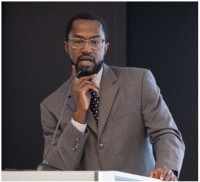Marine Biodiversity
City Resilience
Post-Doctoral Fellowships
Singapore
Coastal vulnerability: can ‘urban’ coral reefs keep up with sea level rise?
The devastating impact of anthropogenic-induced stressors and ocean warming on coral reefs is not news to any of us. The wide range of consequences of these disturbances, however, might be. For instance, these fragile ecosystems not only support high marine biodiversity, but they also play a crucial role in protecting tropical and subtropical coastlines from inundation and erosion during storm surges and tsunami events. To put it simply, healthy coral reefs provide a natural barrier that reduces the impact of large waves before they reach the shore. However, the combined effects of climate change and increasing coastal urbanization has deteriorated many coral reefs and diminished their ability to act as natural breakwater structures, making coastal communities more vulnerable. Indeed, considering that globally, sea levels are rising, extreme weather events are becoming more frequent, and coastal zones are undergoing unprecedented rates of population growth; future flooding events will become more violent, and threaten the lives of more people.
“There is an urgent need to understand how recent ecological and environmental changes on coral reefs within Southeast Asia have impacted physical reef functioning near the coast”, insists Dr. Kyle Morgan, of the Asian School of the Environment at Nanyang Technological University in Singapore. Recognizing that ‘urban’ coral reefs (coral reefs that are located nearby cities) are currently an understudied area, this expert in tropical ecology and geomorphology aims to shed light on whether urban reefs across Southeast Asia (SEA) will still serve as buffers against wave energy under future sea level rise. More specifically, the objective of his research is to evaluate the impact that coastal urbanization has had on coral reefs in the region to assess if, and how, this has affected local coral populations and the ability of reefs to grow.
A coral reef is a large marine structure made of coral organisms that secrete a hard skeleton of calcium carbonate. The rate at which reefs grow depends on the coral species present, but also on local environmental conditions such as light, sea water temperature, nutrients and sedimentation. As the reefs grow towards the water surface other factors may also come into play that erode reefs, such as the presence of sea urchins and parrotfish, who feed off algae growing on the reef and remove small amounts of calcium carbonate in the process. “We know very little about urban reefs, how benthic communities (organisms growing on the reef surface) on these reefs have changed over time, and what impact climate change will have on these already stressed coral populations”, explains Dr. Kyle Morgan. “Until now, research has mainly focused on more pristine and remote coral reef environments. Reefs living in coastal waters close to megacities, like Singapore, are quite different”, he says. Urban reefs are subjected to higher anthropogenic stress, which many corals are unable to cope with, meaning that reefs are typically made up of more resilient species. Slower coral growth rates and reduced coral cover on urban reefs could mean that they will take longer to grow. “Our work is to determine if urban reefs, that are inhabiting these poor environmental conditions, can grow at rates that will keep up with sea level rise”.
Balancing budgets
The project will undertake field intensive research on the make-up of coral populations for these particular urban ecosystems: which reef organisms are contributing to calcification, which are eroding it, and at what rate? The ecological surveys and the experiments will be conducted across gradients of anthropogenic disturbance caused by urbanization over several months. They will measure coral growth, calcification, biological erosion, but also wave interaction. Laboratory analysis of the field samples (coral blocks and experimental substrates) will serve to implement what is called a “carbonate budget” (a measure of the net rate of carbonate production on a reef, or, in other words, the rate at which the reefs are growing). Finally, these numbers will be compared to regional projections of sea level rise. This assessment of coral reefs will investigate how human activities have changed coral reefs over recent time-scales, what environmental factors have driven this change, and how these factors can potentially be mitigated in the future to maintain biodiversity on reefs and reduce coastal hazards for humans.
The present work could also prove instrumental for developing coral reef conservation policies in SEA. As the researcher points out, “the financial costs of building coastal protection is immense. Healthy coral reefs offer these services for free, so besides the ecological aspect, there is also an economic benefit to preserving these ecosystems”. In addition to coastal protection, the output of the project will also contribute to understanding how urbanization has impacted other ecosystem services provided by coral reefs. Indeed, in SEA, coral reefs are heavily relied upon for food provision, tourism, and even indigenous cultural identity. Therefore, the ongoing survivorship of coral reefs and their associated fisheries are not only vital in preventing coastal vulnerability but also tension and/or conflict within coastal communities in the region.

Kyle
MORGAN
Institution
Nanyang Technological University
Country
Singapore
Nationality
Newzealander
Related articles
Marine Biodiversity
Climate Change
Post-Doctoral Fellowship
Spain
Climate-Smart Strategies to Develop Resilience in Artisanal Fisheries of Mediterranean Marine Protected Areas
Determining the climate risk exposure of marine ecosystems is crucial to develop strategies that will strengthen communities’ resilience. Studies have... Read more

Marina
SANZ MARTíN
Spanish Institute of Oceanography
Marine Biodiversity
Food & Nutrition
Post-Doctoral Fellowship
United Kingdom
Integrating Aquaculture and Capture Fisheries to Combat Hunger in Sierra Leone and Other Parts of Africa
During her AXA Research Fund fellowship at the University of Leeds, Dr. Nwamaka Okeke-Ogbuafor will seek to unlock ocean-based solutions... Read more

Nwamaka
OKEKE OGBUAFOR
University of Leeds
Climate Change
City Resilience
AXA Award
United States
Centering Equity and Environmental Justice in the Context of Climate Adaptation
Watch the video and read his interview below: Tell us about yourself and the genesis of your interest in climate... Read more

Christian
BRANEON